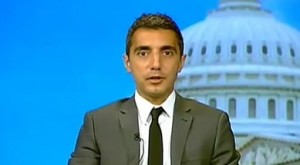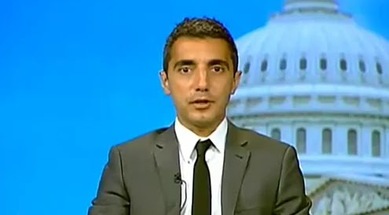
The Arab Spring is undisputedly turning into an Islamist one. This has divided the world over how to deal with it. The realism school of Henry Kissinger supports opening up to Islamists, the same way Kissinger reached out to Communist China in the 1970s.
The Chinese turned out to be more pragmatic than Communist, and eventually became America’s biggest trading partners and the world’s second-biggest capitalist country.
As far as the president of the United States is concerned, governments can call themselves Islamist and anti-American all they want, as long as they realise that it is in their best interests to grab America’s hand, extended to Iran since Obama’s first day in office.
Obama, like many intellectuals, reasons that once in power, the Islamists—like the Chinese Communists before them—will be forced to behave realistically in order to maintain their rule.
This realism approach is not partisan. Kissinger was a Republican. Obama is a Democrat. Other Republicans who see benefits in ignoring Islamist rhetoric in favour of engagement include former Senator Chuck Hagel, a close friend of Obama and a man who made a fortune from his investments in China. Before he retired in 2008, Hagel advocated repeating the China experiment with Iran and preached “engaging” with Syria’s Bashar Al-Assad.
Meanwhile, the Chamber of Commerce, a very Republican-leaning body, received delegations from Egypt’s Muslim Brotherhood not so long ago. Talks focused on common trade and commercial interests. While the chamber is a staunch Israel supporter, its position did not seem to bother the visiting Brotherhood. Maybe when financial interests are at stake, anti-Zionism can take a hike.
John Brennan, President Obama’s counter-terrorism tsar, has gone on the record several times to call for talks with Hezbollah. Lebanon might not offer Washington lucrative business, but if Hezbollah settles for becoming a bunch of businesspeople in return for giving up their arms, that would be a worthwhile deal for the US government.
But realism can also misfire. If opening up to America does not yield economic benefits—and therefore social and political stability despite a lack of freedom and democracy like it did in China—the Islamist regimes of Egypt, Iran and elsewhere will certainly rebound, fold and endorse more anti-Americanism.
The realism option may bring America success with the mullahs of Iran and the Muslim Brotherhood in some Arab countries. It certainly spells trouble, however, for Arab and Iranian liberals and pro-democracy activists.
A prerequisite for America’s “opening up” would be Washington’s relinquishing of any support of freedom and democracy in Iran, Egypt, Iraq and other countries. Any tangible support for the spreading of these principles, save for lip service and the annual human rights reports from the Department of State, would be seen as a deal breaker for the Islamists.
The Islamists would then get a free hand to tighten their grip on power. The Iranian state will continue basking in its self-bestowed divinity, forcing women to cover their heads and men to grow their beards, censoring the press, destroying art, killing homosexuals, and prohibiting alcohol. By opening up to Islamists, America would be throwing every non-Islamist in the Middle East under the bus.
While still not there yet, Egypt is on its way to recreating a medieval state similar to the one in Iran. Several post-revolution reports have it that Coptic Egyptian women are now covering their heads when in public to spare themselves unwelcome stares, jeers and harassment.
Being able to consume alcohol in public places will become as rare in Egypt as it has in Baghdad, Tunis and Tripoli. Such changes are taking place without even being enshrined in any constitution or state law.
Popular uprisings in Arab countries are only half the work toward an Arab Spring. Completion would require the cultivation of the principles of freedom, democracy and liberty, and that is impossible with Islamists in control.
Neither the Mullahs nor the Brothers intend, or even know how, to lead their countries to become prosperous and stable democracies. Their idea of government is a hodge-podge of divine teachings and archaic national chauvinism.
Yet the problem is that no alternative to Islamism is anywhere to be found in Iran or many parts of the Arab world. Arab liberals are weaker than Islamists, who usually go underground during the days of dictatorship and emerge after revolutions, mostly unscathed, to take over governments.
America’s realism might pay off in the short and medium terms. But a world where democracy is only practiced in a handful of nations does not look like a happy or stable world.
Hussain Abdul-Hussain is the Washington Bureau Chief of Kuwaiti newspaper Al-Rai
This article was originally published in Now Lebanon www.nowlebanon.com



